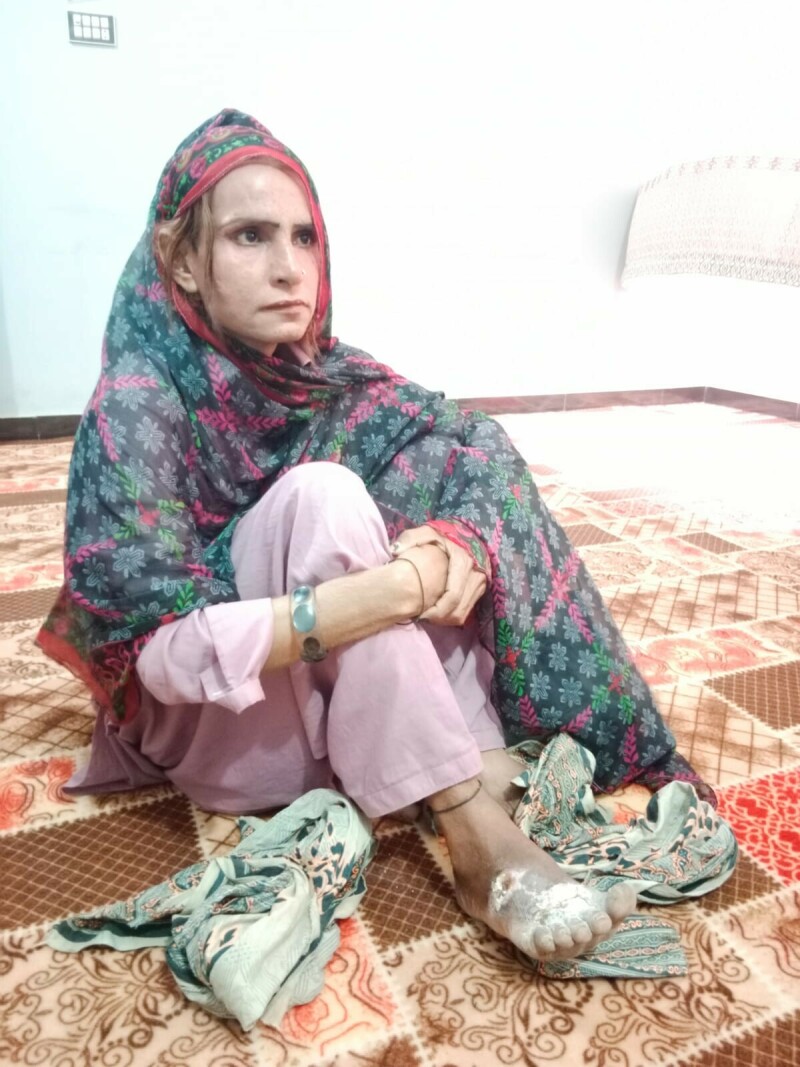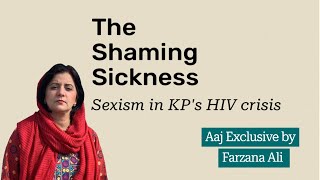For the first time in Pakistan, hospital sued for HIV discrimination
When 27-year-old Chanda went to Karachi’s Civil hospital in May bleeding after a road accident, she was refused to be treated. So she started going to a private clinic to bandage her wound. In one of these visits, the paramedic was not wearing gloves. Chanda’s friend Naseebo Jan was accompanying her and told the paramedic that Chanda had HIV and they should protect themselves. The staff refused to touch her. Not just that, they sent other hospitals Chanda’s HIV status on WhatsApp.
Chanda’s family tried to treat her at home but infection set in and maggots attacked the wound. She eventually died.
Now, rights activists are suing Civil hospital because Chanda’s is not the only case. “We have six such cases,” Hina Baloch, one of the petitioners, told Aaj News. “One of them will die any time if treatment is not provided.”

This is the first time this sort of discrimination has landed in court in Pakistan.
According to the petitioners’ lawyer Sara Malkani, three of them need immediate medical care but are being denied at Civil hospital. One of the petitioners requires a total hip replacement surgery, another requires regular dialysis and blood transfusions. The third petitioner is being continuously denied medical care for her hernia, leading to externally visible swelling and pain. Their names have been withheld to protect their privacy.
On Wednesday, the Sindh High Court’s first hearing for the petition was held by Justice Yousuf Sayeed and Justice Abdur Rehman. The hospital was represented by the Assistant Advocate General Sindh.
The hospital’s Medical Superintendent, Dr Greece Kumar appeared with his assistant Dr. Shahzad. The court had summoned them and asked for a written comment.
The judge ordered the MS to immediately provide healthcare to the HIV positive petitioners, within 1-2 days. The hospital representatives submitted to court that they have appointed a Focal Person, Dr Hareesh Kumar and if the petitioners approach him even today, they would be provided full medical attention without any delay.
The HIV workers who are helping the petitioners to get medical help and transgender rights activists were also present at the hearing on Wednesday.
The MS agreed to do it and defended the hospital, by saying that medical help that was needed by the petitioners, such as hip replacement surgery and dialysis was not available at Civil hospital.
The judge asked if there were any protocols or mechanisms for the treatment of HIV patients. They replied that there was separate staff to treat them.
According to the transgender community’s HIV workers, they tried all departments at Civil hospital to get Chanda treatment for her foot wound, but no one was ready to bandage her.
According to Hina Baloch, the government is responsible for providing disposable surgical kits to treat HIV-positive patients. “We want to know why these kits are not being provided. And if they are being provided, then why aren’t they being used.”
This is also the first time that the Sindh HIV and AIDS Control Treatment and Protection Act, 2013 is being used. The first hearing of the case is scheduled on June 7 at the Sindh High Court, where the CHK Medical Superintendent has been summoned. The Sindh Department of Health and Dr. Ruth K.M. Pfau Civil Hospital, Karachi have been named in the petition.
Along with these patients, Hina Baloch and Shahzadi Rai are also petitioners. Both of them work towards the prevention of HIV/AIDS in the transgender community.
Human Immonodeficiency Virus or HIV is usually spread by unprotected sex or sharing of drug injecting tools like syringes and needles. It can spread through unscreened blood transfusions, from mother to child and sometimes from occupational exposure at hospitals. Only 0.77% of all HIV infections in Sindh are transmitted in healthcare settings, according to data from the Communicable Disease Control, Sindh.
The total number of people living with HIV in Pakistan, as estimated by UNAIDS in 2021, is around 210,000. Only around 23% of people living with HIV are tested and know their status and only 14% are on Anti-retroviral therapy (ART). ART helps reduce the HIV viral load in blood, making the patient less likely to develop life threatening AIDS and also reduces the chances of the virus spreading.
For the latest news, follow us on Twitter @Aaj_Urdu. We are also on Facebook, Instagram and YouTube.

















Comments are closed on this story.